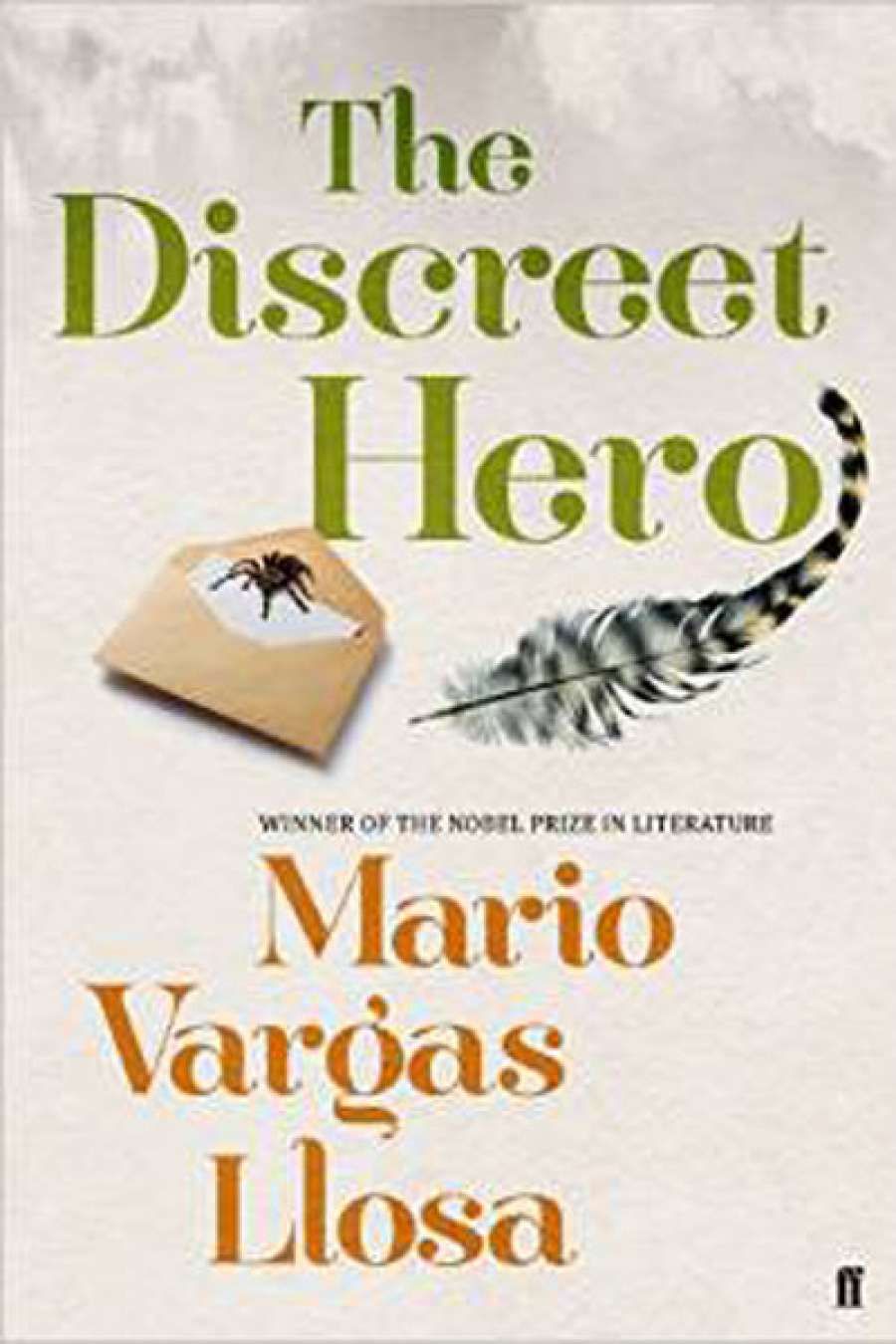
- Free Article: No
- Contents Category: Fiction
- Custom Article Title: Peter Craven reviews 'The Discreet Hero' by Mario Vargas Llosa translated by Edith Grossman
- Review Article: Yes
- Online Only: No
- Book 1 Title: The Discreet Hero
- Book 1 Biblio: Faber and Faber, $29.99 pb, 326 pp, 9780571310715
The Discreet Hero (El héroe discreto) is the story of two old men and their separate circumstances. One is a poor man with a precarious trucking company. The other is the general manager of a biggish company, a man of taste as well as wealth. They each get involved in complex horrors that come to constitute their particular crises. The Indian trucker discovers that extortionists are threatening his young mistress (his wife is a remote figure). The businessman is at the edge of retirement when the octogenarian owner of the company decides to run off and marry his young girlfriend and requires his lieutenants’ cooperation in the war against his two no-good sons who have their eyes on the prize of his fortune. That is the beginning of this story, this brace of stories, which retains an irresistible momentum through its vast range of narrative developments.
The old trucker, for instance, has dealings with a clairvoyant woman who uses her knowledge for the benefit of others. The businessman has a student son who appears to have visions of a very feasible devil figure who – there is a reference to Thomas Mann’s Doctor Faustus – conjures the wandering stars in the name of every conceivable nihilism or undermining frailty of humankind. But is the boy faking it? The priestly friend of his old agnostic father – a cameo of understated vividness, this quiet sage of a priest is like one of those walk-on characters in Tolstoy who begin and end nowhere but are completely alive in themselves – doesn’t know what to make of it, though he can see the absolute feasibility of the either/or.
 Mario Vargas Llosa
Mario Vargas Llosa
‘Mario Vargas Llosa is one of the marvels of contemporary fiction’
All of The Discreet Hero is a bit like that. A couple of twists, a couple of turns, and – abracadabra – a changed fictional landscape with a wholly unexpected shading into love or hate, desolation or hilarity. This is the kind of old master’s fiction that is the work of a writer bored with maintaining tones, who has a capacious sense of the dramatic possibilities that lurk in every obvious twist, every all-but-predictable turn of a stair that winds but, well, has to keep going up somehow.
Such licence and such lavish indirection in the face of a handful of established postulates can – with the confidence of a Mario Vargas Llosa – lead to a book that is full of colour, soap-like in its close focus on the unfolding of the fascination of the everyday and in a potent Hispanic way obsessed with the codes of honour and the ethics that can be engaged despite the tattered harlequin’s garb of human outrage.
‘This is the kind of old master’s fiction that is the work of a writer bored with maintaining tones’
There are his lumbering bludgeons of policemen (familiar from earlier books) who hit on truths with a Dogberry-like intuition for the stupidest option, and there are treacherous sons and credible heartbreak bitches and wise, loving wives. There is every cliché in the book of fiction’s compendium of stereotypes and archetypes and their capacity to cloak and mime each other. But the upshot is remarkable and also remarkably readable.
‘Discreet’ is a word we associate with the genius of the Spanish-speaking peoples because of Buñuel and The Discreet Charm of the Bourgeoisie. What it betokens is the immoderateness, the savagery and the scarlet, the flash of the stab at the bullfight, the blood and diamonds of Lorca, the monumental folly of Don Quixote. All of these things are there in The Discreet Hero, and so is that doodling sense of comedy that gets close to the heart’s private spaces which you find in another film-maker: in the high middle period, just yesterday, of Almodóvar.
In any case, Mario Vargas Llosa’s The Discreet Hero is one of those weird and wonderful page turners which makes you wonder how and why pages turn. It’s an old magician’s book, and there is something as ice-cold and remarkable about it as any apparition of the dawn.


Comments powered by CComment